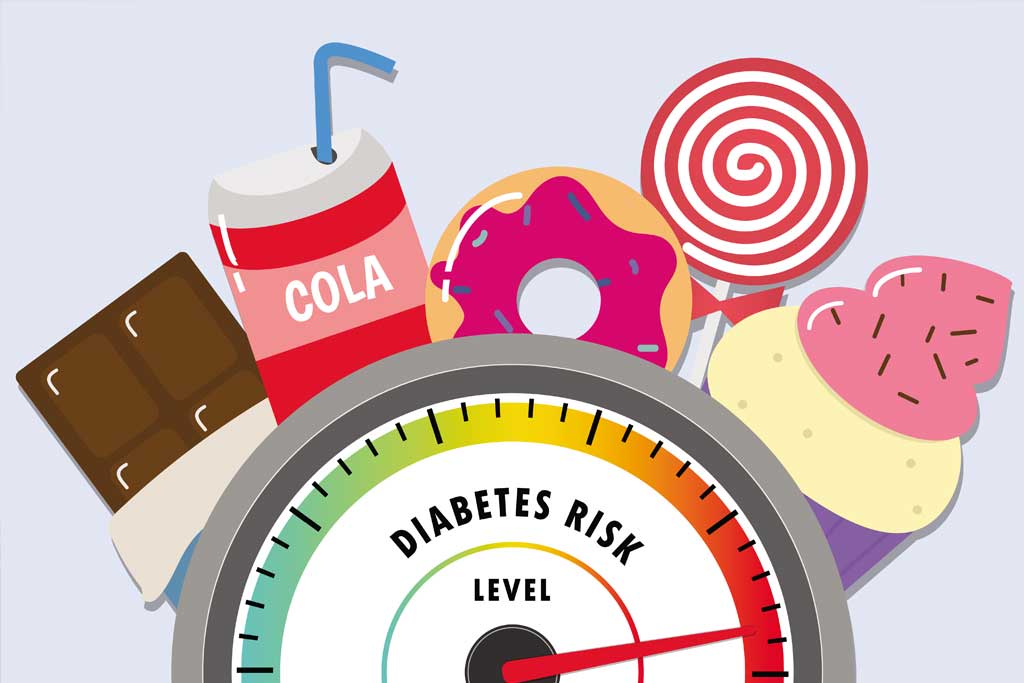Affecting more than 100 million Americans, diabetes is a disease that affects the way your body uses sugar for energy. It is a serious condition, so you should learn to control it, and take better care of your body.
What causes blood glucose levels to rise?
Food
Foods that contain the energy sources carbohydrates, fats, and protein have all been known as causes of immediate and definable spikes in blood glucose levels.
Carbohydrates
Of the three, carbohydrates have been found to affect blood glucose the most. Carbs with a higher glycemic index tend to cause the most rapid spikes in blood glucose. Plus, counting carbohydrates can be difficult, since getting the number wrong can affect blood glucose.
Fats
Fatty foods make those with diabetes more resistant to insulin. This means someone eating a fatty meal would need to take more insulin to cover the exact portion of food without the fat.
Protein
While protein typically has very little effect on blood glucose, in the absence of carbohydrates (such as a low carb meal) or insulin, it can raise blood glucose. Many individuals with diabetes who eat carb-free meals will take a bit of insulin to cover the difference.
Caffeine
Caffeine has been known to increase insulin resistance and also stimulate the release of adrenaline.
Alcohol
During alcohol consumption, the liver breaks down the alcohol and reduces its output of glucose into the bloodstream. This causes a drop in blood sugar levels. Mixers rich in carbohydrates like orange juice can be under-the-radar causes of blood sugar increases if the alcohol was consumed on an empty stomach.
Tips for avoiding glucose spikes from food
Someone with diabetes should eat meals at regular times of the day and should not vary their portion sizes. It is a great idea to eat one more serving of vegetables in a week. Drinking more water is also helps glucose levels. When drinking caffeine or alcohol, make sure you test your blood glucose often to be wary of your levels.
Medication
The medication comes in the form of pills or insulin injections. Dosage is incredibly important because it directly impacts blood glucose.
Moreover, medication timing can also be critical. You can take some medications at any time of day, while others have an optimum time to be taken, like at meals. For instance, taking insulin either before or after a meal is critical for many. Taking medications at the correct time every day, and checking personal blood sugar levels regularly will help ensure that diabetes is being regulated properly.
Remember to consult with your doctor on non-diabetes medications, as these can interfere with your diabetes medications and blood glucose levels.
Activity
A regular amount of light activity has been found to lower glucose. Walking, yoga, and pilates all aid in lowering blood glucose levels. Oppositely, high-intensity exercise like sprinting, running, or weight lifting has been known to raise blood glucose levels. A racing heart, hunger, trembling, headache, and dizziness are all symptoms of a spike in levels.
The science behind this stems from the response of the body to release stored glucose because of adrenaline. You do not have to avoid high-intensity exercise. Every little bit of exercise does help!
Tips for avoiding glucose spikes from activity
Do not exercise on an empty stomach. Eat carbs before and during long exercises. You should also carry a snack. Keep fast-acting carbs with you, should your levels drop. Honey, fruit juice, and glucose tabs all work.
Check your blood sugar often. Test your levels before and after activities to see your body’s response. For longer workouts, check it every 30 minutes. Keep track of your blood sugar and your activity. You can figure out the best medication doses, meals and snacks to have once you notice patterns in your routine.
Biological factors that can cause your levels to spike
It is important for those with diabetes to be aware of their blood sugar levels and how their body feels. The following biological factors can cause blood glucose levels to rise.
Insufficient sleep
A good night’s sleep is worth its weight in gold. A well-rested body will need less insulin on a good night’s sleep. Many have found that the less sleep they get, the more variable glucose levels they find, or the more insulin they need. Also, studies show that not getting enough sleep can lead to sloppy diabetes control, insulin resistance, weight gain, and increased food intake.
Illness
Illness can cause the body to release chemicals that lead to the liver releasing more glucose. This causes the body to become less sensitive to insulin. Before getting sick, many with diabetes will run low blood sugar levels.
Stress
Stress is also a factor. It can lead to more glucose being released from the liver, causing the body to become less sensitive to insulin (so that you would need more). This can contribute to changes in mood, causing nervousness, anxiety, and other issues. Exercise, time in nature, yoga, breathing techniques, and meditation can be helpful methods to combating stress.
Allergies
Some diabetes patients have reported a spike in blood glucose levels when their allergies were affected.
Smoking
Studies have shown that those with diabetes who smoke have an increase in insulin resistance and face an increased risk for complications.
Environmental factors that can cause your levels to spike
Bad or expired insulin
Diabetes medications and insulin must be stored at the proper temperatures to be effective. You should not leave insulin in direct sunlight, a hot car, or in the refrigerator when it should be unrefrigerated, because this can lead to the medicine working improperly. Signs your medication has gone bad is a change in color or cloudy look.
Altitude
Individuals with diabetes in high altitude places have reported that altitude can increase insulin resistance.
For more information
Diabetes can be deadly, so you should not take it lightly. For more information, contact ARcare today at 877-879-8032.
